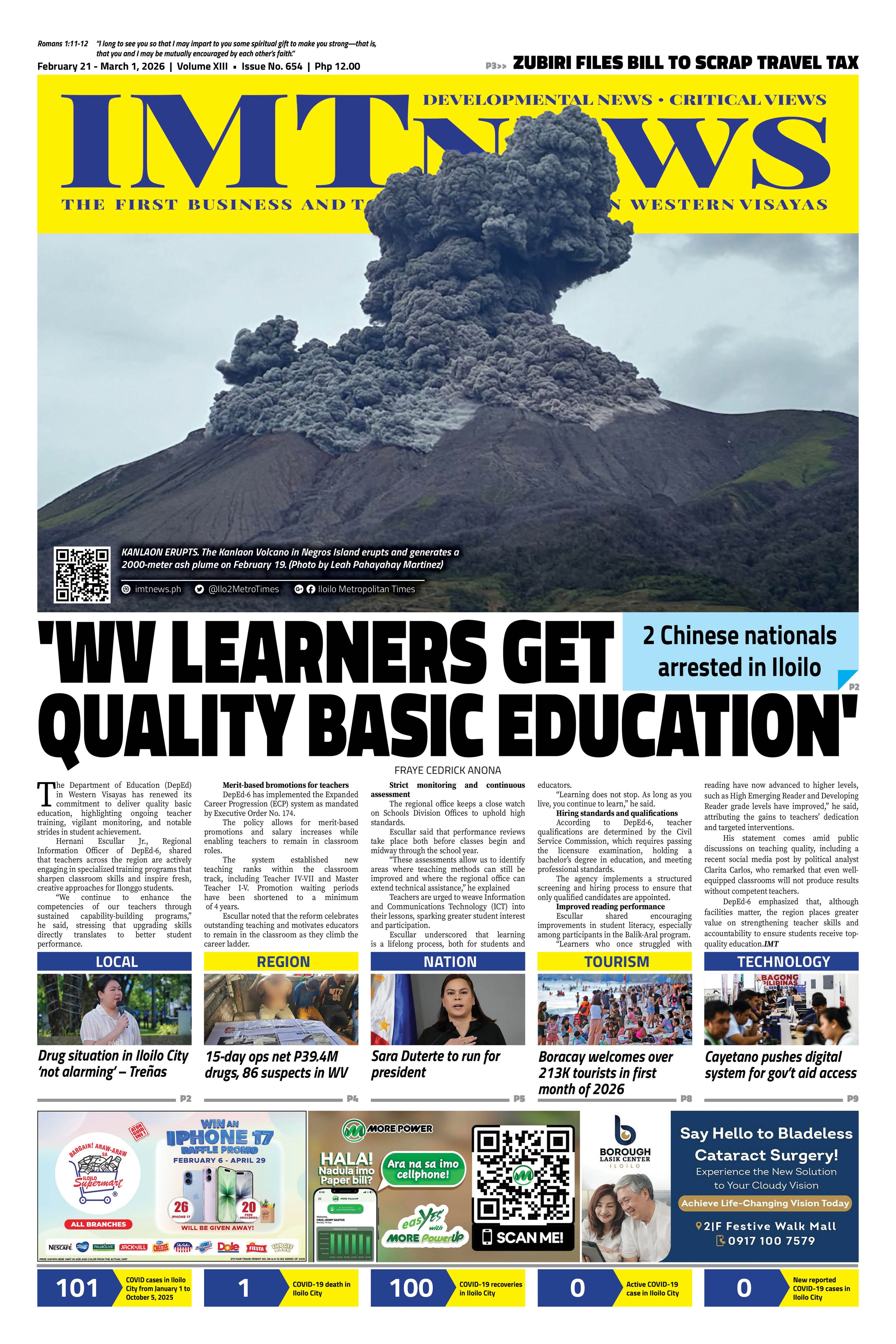“There is no such thing as a pure introvert or extrovert. Such a person would be in the lunatic asylum.”—Carl Jung
THE government, especially the Department of Justice (DoJ) now headed by a former politician from Cavite, should be careful in swapping verbal darts against loquacious and discredited former presidential spokesman Harry Roque in relation to the latter’s asylum application in The Netherlands.
If Jesus Crispin Remulla, the DoJ boss under the Marcos Jr. administration, doesn’t have the goods about the real status of Roque’s asylum application, he must refrain from recklessly issuing statements to the media that would hurt DoJ’s credibility.
Roque, wanted in the Philippines for major crimes like human trafficking, among other serious cases, might use the DoJ’s bellicose approach to his case to strengthen his claim of persecution by the Philippine government.
If the DoJ is not sure about the alleged denial by the Dutch government of Roque’s asylum application, it should not announce prematurely that “he fled to Germany” where he was supposed to allegedly file another asylum application after being “denied” in The Netherlands.
-o0o-
Roque, of course, went ballistic and belied the DoJ’s “lies” and “fake news.”
We can’t blame this talkative troublemaker. After all, only him and the Dutch government know the real status of his asylum application.
Asylum application fundamentally is strictly confidential, and the Dutch government will surely see to it its details will never leak to any third party.
The way Roque fired his strongly worded sallies showed he wasn’t afraid to engage Remulla and the DoJ in a no-holds-barred showdown regarding his asylum case in The Netherlands.
Most people in the world have had the experience of leaving the place where they grew up like Roque.
Maybe they will only move as far as the next village or city. But for some people, they will need to leave their country entirely–sometimes for a short time, but sometimes forever, according to Amnesty International (AI)
Every day, all over the world, AI observed, people make one of the most difficult decisions in their lives: to leave their homes in search of a safer, better life.
-o0o-
AI said there are many reasons why people around the globe seek to rebuild their lives in a different country. Some people leave home to get a job or an education.
Others are forced to flee persecution or human rights violations such as torture. Millions flee from armed conflicts or other crises or violence.
Some no longer feel safe and might have been targeted just because of who they are or what they do or believe – for example, for their ethnicity, religion, sexuality or political opinions.
These journeys, which all start with the hope for a better future, can also be full of danger and fear. Some people risk falling prey to human trafficking and other forms of exploitation. Some are detained by the authorities as soon as they arrive in a new country. Once they’re settling in and start building a new life, many face daily racism, xenophobia and discrimination.
Some people end up feeling alone and isolated because they have lost the support networks that most of us take for granted – our communities, colleagues, relatives and friends.
-o0o-
There are many reasons why it might be too difficult or dangerous for people to stay in their own countries.
For example, children, woman and men flee from violence, war, hunger, extreme poverty, because of their sexual or gender orientation, or from the consequences of climate change or other natural disasters. Often people will face a combination of these difficult circumstances.
People who leave their countries are not always fleeing danger. They might believe they have a better chance of finding work in another country because they have the education or capital to seek opportunities elsewhere.
Others might want to join relatives or friends who are already living abroad. Or they might seek to start or finish their education in another country.
There are lots of different reasons for people to start a journey to build a life in a new country.
-o0o-
According to AI, the terms “refugee”, “asylum seeker” and “migrant” are used to describe people who are on the move, who have left their countries and have crossed borders.
The terms “migrant” and “refugee” are often used interchangeably but it is important to distinguish between them as there is a legal difference.
A refugee is a person who has fled their own country because they are at risk of serious human rights violations and persecution there. The risks to their safety and life were so great that they felt they had no choice but to leave and seek safety outside their country because their own government cannot or will not protect them from those dangers.
Refugees have a right to international protection.
An asylum seeker is a person who has left their country and is seeking protection from persecution and serious human rights violations in another country, but who hasn’t yet been legally recognized as a refugee and is waiting to receive a decision on their asylum claim.
Seeking asylum is a human right. This means everyone should be allowed to enter another country to seek asylum.
Alex P. Vidal, who is now based in New York City, used to be the editor-in-chief of two leading daily newspapers in Iloilo, Philippines.—Ed







